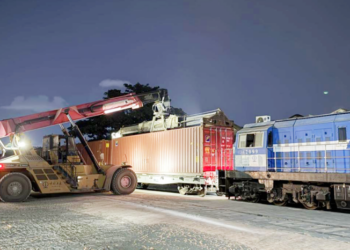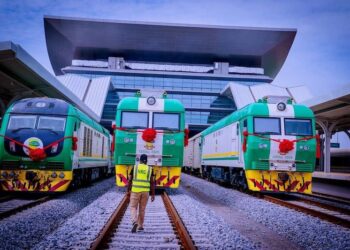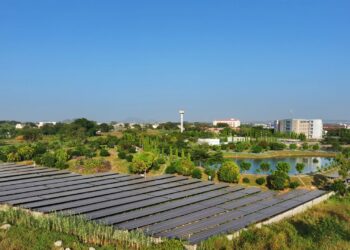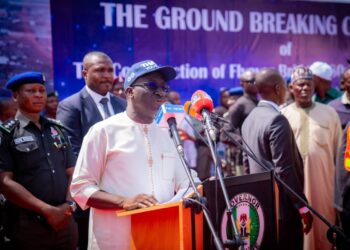The Lekki Free Trade Zone is currently hosting 53 enterprises, employing approximately 4,000 workers.
This information was shared by John Zhao, an official from the China Civil Engineering Construction Corporation (CCECC), via his X page on Monday.
According to Zhao, the LFZ is contributing to Nigeria’s foreign exchange.
Local Economy
Zhao stated that the zone, which is developed by CCECC, is already advancing the economy of Lagos State and Nigeria as a whole.
“The flower of cultural exchange is indeed blooming in Lagos, Nigeria. The 6th China-Nigeria Workers’ Games recently took place at the Lekki Free Trade Zone, which is developed and operated by CCECC.
“The event featured football, table tennis, and the traditional Nigerian jump ball, with over 500 employees from the zone enthusiastically participating.
“Covering an area of 30 square kilometers, the Lekki Free Trade Zone not only boosts Nigeria’s foreign trade but also injects new energy into the local economy. Currently, 53 enterprises are operating within the zone, employing a total workforce of 4,000 employees,” he stated, assuring that CCECC will continue to play a positive role in the nation’s economy.
What You Should Know About Lagos Free Trade Zone
The Lagos Free Zone (LFZ) is a Free Trade Zone in Lagos, Nigeria.
Covering 830 hectares, the zone is integrated with the Lekki Deep Sea Port and is located 60 kilometers east of Lagos city.
- In July this year, the Lagos Free Trade Zone reported generating N115 billion in revenue from January to June 2024.
- Established in 2012, the Lagos Free Zone (LFZ) is a unique and award-winning, port-based industrial zone (850 hectares) in Lagos, Nigeria, with over USD 2.5 billion in committed FDI projects at the time.
- Owned and promoted by Tolaram, LFZ is located in Lekki, with China-Africa Lekki Investment Ltd (CALI) being a major stakeholder in the infrastructure development of the zone.
- Like other free zones, companies in LFZ can sell their goods within the Nigerian customs territory without state or federal taxes and without the need for import or export licenses. They can also repatriate their profits and dividends.
- Raffles Oil and Insignia Systems, Inc. were the first and second companies to establish operations in the zone, respectively.
LFZ falls under the jurisdiction of the Lagos State Government, which provided the land for the zone. It started in 2002 with 215 hectares, and in 2012, the state government allocated an additional 590 hectares.























